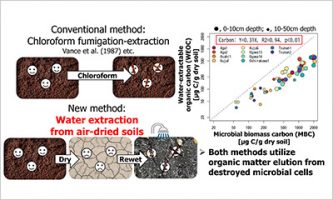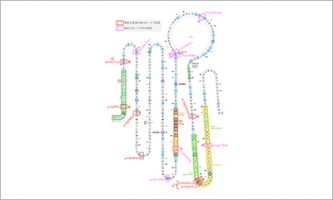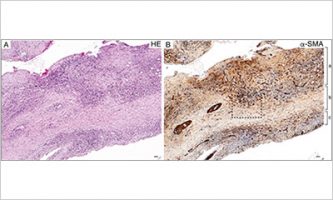Discovery of Novel Therapeutic Effects of Existing Drugs for Liver Cirrhosis: A gene expression-based screening assay for drug repositioning
Nov 07 2022
Liver cirrhosis is a disease widely seen all over the world. Approximately one million people die annually due to liver cirrhosis. It is a pathological condition in which liver fibrosis progresses and liver function declines due to factors such as viral hepatitis, alcoholic liver disease, and non-alcoholic steatohepatitis. The development of effective treatments is urgent.
The research group Professor KAMIMURA Kenya (Department of General Medicine, Niigata University School of Medicine in the Division of Gastroenterology and Hepatology, Graduate School of Medical and Dental Sciences Niigata University), Assistant Professor SAKAI Norihiro and Professor TERAI Shuji in the Division of Gastroenterology and Hepatology, Graduate School of Medical and Dental Sciences, Professor OHYAMA Kaname in the Department of Hospital Pharmacy of Nagasaki University Hospital, Assistant Professor MIYAMOTO Hirotaka in the Department of Pharmaceutics, Nagasaki University Institute of Biomedical Sciences, and Professor NAKASHIMA Mikiro in the Department of Pharmacy Practice, Nagasaki University Institute of Biomedical Sciences used a drug repositioning1 method based on the alteration of gene expression2 and revealed in mice that letrozole3, which is used to treat breast cancer, is effective in suppressing the progression of liver fibrosis.
Research Results
- Liver fibrosis is the final stage of liver diseases, however, no standard antifibrotic therapy has been established.
- The gene expression-based screening assay for 36 medications, using chimeric mice with humanized hepatocytes4 revealed that letrozole has a modifying effect on fibrosis-related gene expression in the hepatocytes.
- Letrozole ameliorated MCD- and CCl4-induced liver fibrosis by suppressing the Yap-Ctgf pathway by partially modifying the expressions of Hsd17b13 and Cyp26a1, which reduced retinoic acid level in the hepatocytes.
Glossary
1.Drug repositioning
Gene expression is the process of synthesizing proteins based on genetic information and converting them into structures and functions in cells. This change is called the alteration of gene expression.
2.Alteration of gene expression
A method of discovering new efficacy of an approved drug whose safety and pharmacokinetics have been confirmed and developing it as a therapeutic drug for a different disease.
3.Letrozole
A type of aromatase inhibitor, a drug used to treat breast cancer.
4.Chimeric mice with humanized hepatocytes
Special mice whose livers are mostly composed of human hepatocytes. More than 80 percent of the mice used in our study have human hepatocytes.
Publication Details
Journal: Journal of Gastroenterology
Title: Letrozole ameliorates liver fibrosis through the inhibition of the CTGF pathway and 17β-hydroxysteroid dehydrogenase 13 expression
Authors: Norihiro Sakai, Kenya Kamimura, Hirotaka Miyamoto, Masayoshi Ko, Takuro Nagoya, Toru Setsu, Akira Sakamaki, Takeshi Yokoo, Hiroteru Kamimura, Hiroyuki Soki, Ayako Tokunaga, Tatsuo Inamine, Mikiro Nakashima, Hatsune Enomoto, Kazuki Kousaka, Hidehisa Tachiki, Kaname Ohyama, and Shuji Terai
doi: 10.1007/s00535-022-01929-w
News release
The article was released in EurekAlert, the online publication of the American Association for the Advancement of Science.
More News
-
 Jun 26 2025 Research results
Jun 26 2025 Research resultsEstimating Microbial Biomass from Air-Dried Soils: A Safer, Scalable Approach ーRevolutionary Technique Estimates Soil Microbial Biomass Using Water-Extractable Organic Matterー
-
 Jun 03 2025 Research results
Jun 03 2025 Research resultsAssociation of rare APOE missense variants with Alzheimer's disease in the Japanese population
-
 Mar 31 2025 Research results
Mar 31 2025 Research resultsDiscovery of a New Pathology for Spinal Hypertrophic Pachymeningitis Caused by Vasculitides, Designated an Intractable Disease by the Ministry of Health, Labor and Welfare, Japan: A Path to Therapy
